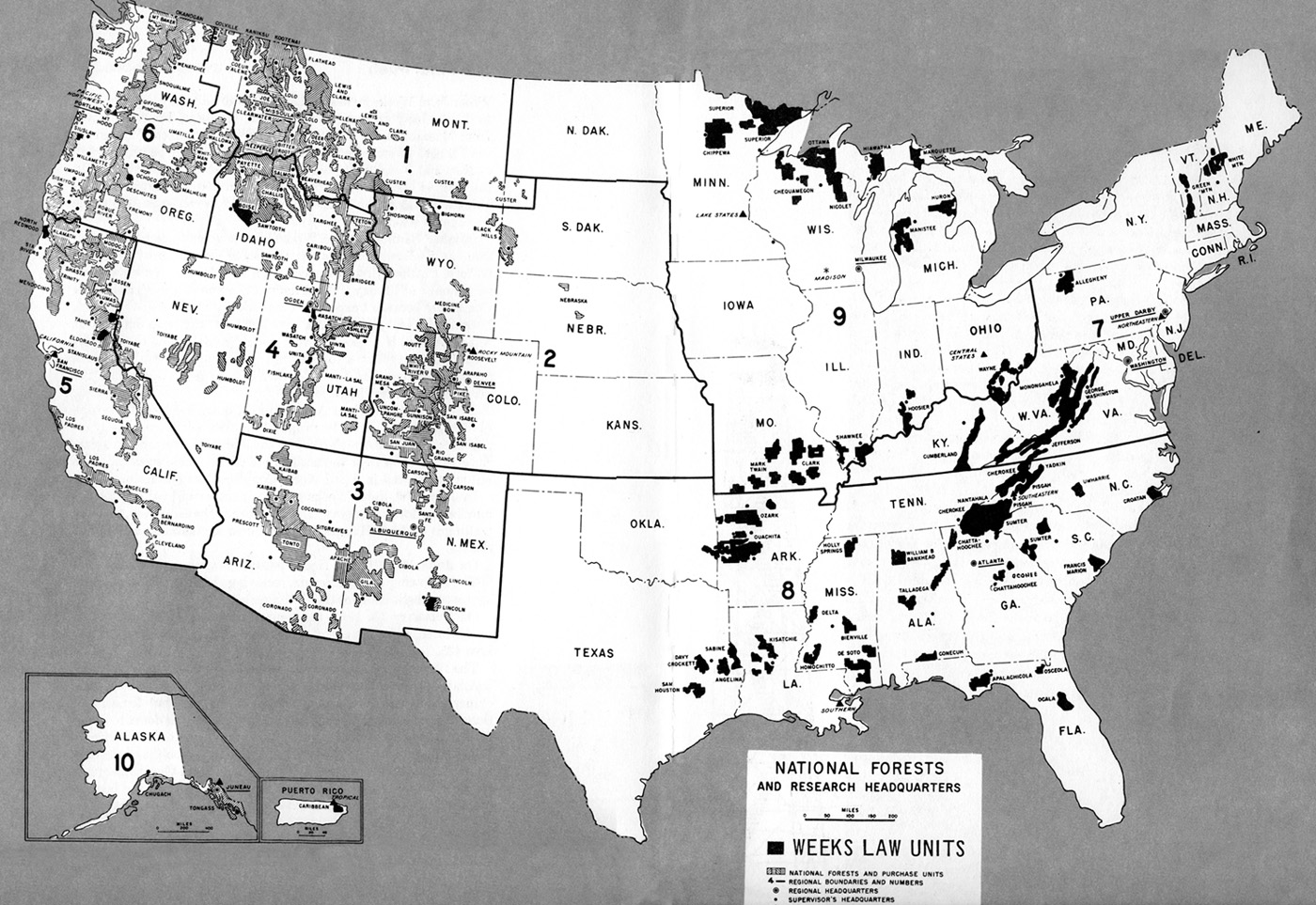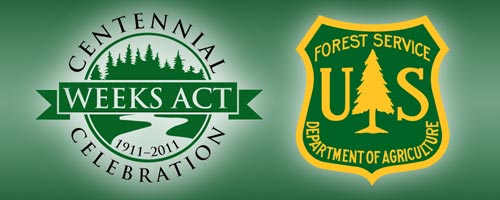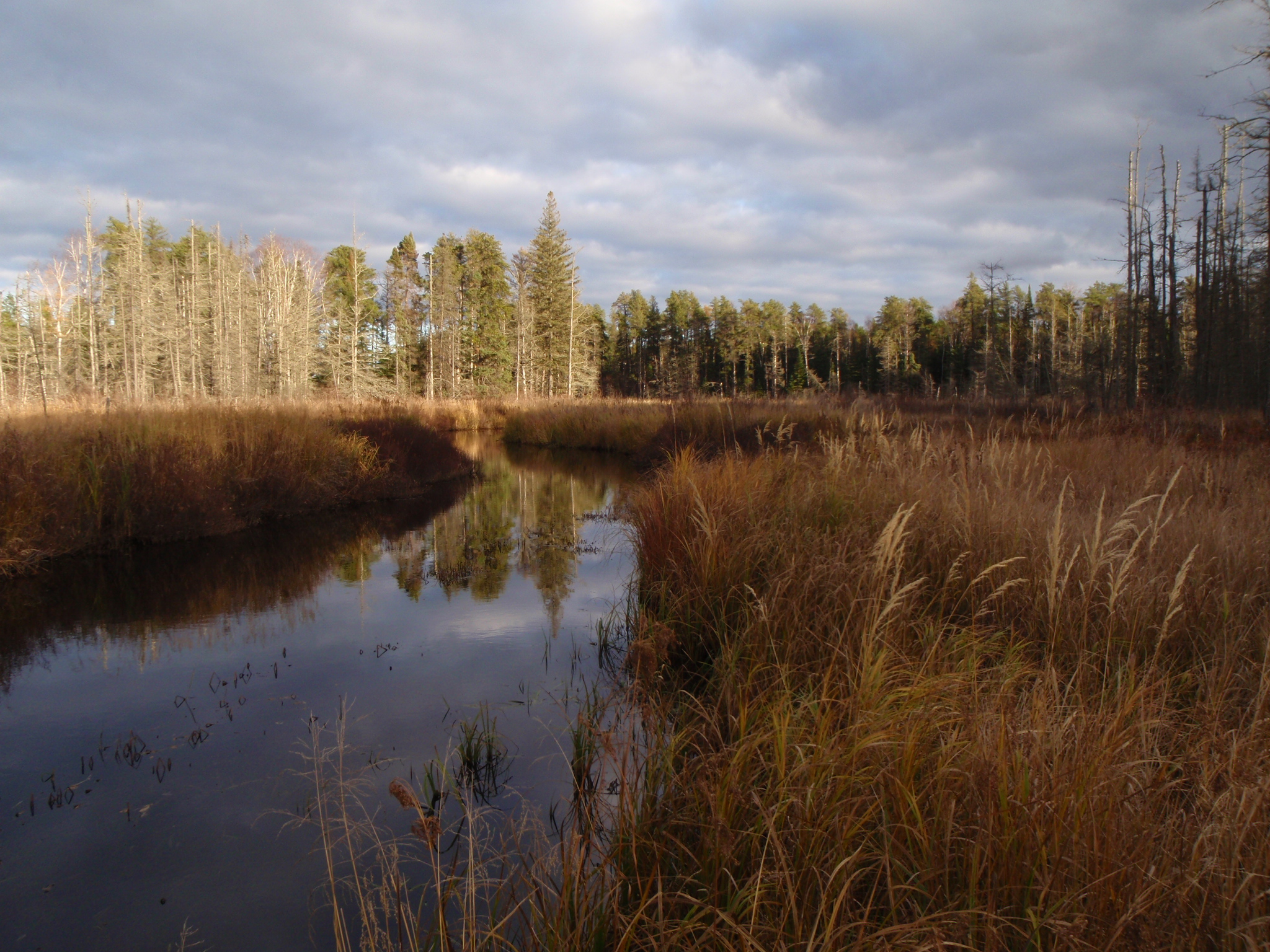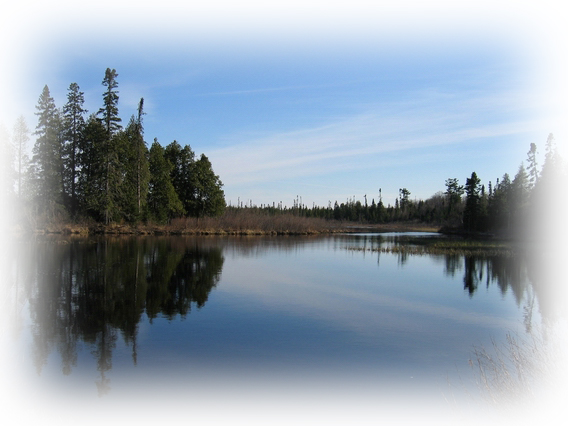National Forest and Watershed Protection

Weeks Act Unit Map - FOREST HISTORY SOCIETY
PDF of this Press Release HERE
For Immediate Release, March 28, 2017
Contact:
Attorney for Plaintiffs: Marianne Dugan, (541) 338-7072, mdugan(at)mdugan.com
Attorney for Plaintiffs: James Peters, (320) 634-3778, jim(at)peterslawfirm.us
Elanne Palcich, Save Our Sky Blue Waters (218) 969-9557, epalcich(at)cpinternet.com
Lawsuit Filed to Halt Land Exchange for PolyMet Mine
PolyMet Mine poses an unacceptable risk and will harm Minnesota’s water and environment
Duluth, Minnesota--Save Our Sky Blue Waters, Save Lake Superior Association, and the Sierra Club North Star Chapter have filed legal action against the U.S. Forest Service (USFS) land exchange with PolyMet.
If approved, PolyMet would be Minnesota’s first ever sulfide mine and would operate for 20 years, and threatens to pollute the headwaters of Lake Superior with toxic sulfide mining waste for hundreds of years after it is closed, requiring near perpetual water treatment and maintenance of the mine and processing site.
The legal claims in the lawsuit arise from the U.S. Forest Service’s violations of the Weeks Act and the National Environmental Policy Act (NEPA). This is the third lawsuit filed against the PolyMet land exchange, and the only one that raises Weeks Act and NEPA claims.
Save Our Sky Blue Waters and the Save Lake Superior Association (SLSA) are northern Minnesota groups advocating for the protection of the Arrowhead Region, in which we live and recreate. The Sierra Club represents members across Minnesota and has a long history of working to protect state and federal public lands as places for people to share experiences outdoors and where our wild heritage is preserved.
According to Elanne Palcich of Save Our Sky Blue Waters, "We cannot accept the poisoning of our waters with toxic sulfide mining waste. Mercury, sulfates, arsenic, and other heavy metals are known to have severe adverse effects on human health, wildlife and the environment. The Forest Service’s land exchange decision would turn over more than 6,700 acres of protected Superior National Forest to a foreign corporation, allowing them to pollute our water while turning our forests and wetlands into massive open pits and waste rock piles. By approving the PolyMet land exchange, the Forest Service is forsaking its duty to protect the headwaters of Lake Superior and opting to leave behind a toxic legacy of sulfide mine pollution, with its accompanying health risks for us and future generations.”
Le Roger Lind, President of SLSA, states, "Save Lake Superior Association members and their families are legitimate stakeholders in the effort to protect the quality of the water flowing into Lake Superior from the St. Louis River and its watershed. This land exchange would enable the introduction of a new and more toxic source of water pollution from copper-sulfide mining into the lake. Despite their assertions, the corporations, state agencies and the USFS have not been able to demonstrate their abilities to protect the public from these health threats. Rhetoric neither purifies water nor protects our children. Reverse the approval of this land exchange in the public interest."
Sierra Club's North Star Chapter State Director, Margaret Levin, emphasizes, “This is not the legacy we want to leave for our children and grandchildren. The land exchange should be rejected, along with PolyMet’s plan – which would pollute water for centuries, destroy thousands of acres of wetlands, and risk the health of people downstream.”
By agreeing to a land exchange, the USFS is going against its own mission statement: "To sustain the health, diversity, and productivity of the Nation's forests and grasslands to meet the needs of present and future generations." Its motto is "Caring for the land and serving people."
The USFS is ignoring its own mandate to protect land acquired under the Weeks Act [1] for watershed protection. Approving the land exchange for PolyMet’s destructive mine is especially egregious, since the PolyMet mine would be located on the headwaters of Lake Superior, an internationally important watershed. The USFS has failed to address the ramifications of water pollution associated with the mining of sulfide ores and the destruction and degradation of thousands of acres of irreplaceable forested wetlands. Such pollution cannot be restrained by artificial boundaries and will eventually impact adjoining areas of Superior National Forest. Ultimately, water pollution from mining activities, waste rock piles, and tailings basins would flow downstream into the St. Louis River, through Fond du Lac Reservation, Cloquet, and Duluth--to Lake Superior, head of the Great Lakes. PolyMet's Environmental Impact Statement (EIS) acknowledges that water treatment would be necessary for at least 500 years, virtually forever.
According to the EPA, the coniferous and open bogs of the exchange area and surrounding wetlands are considered Aquatic Resources of National Importance (ARNI) in terms of unique habitat, biodiversity, downstream water quality, and flood control, specifically to the Lake Superior Watershed and the Great Lakes Basin. By approving the PolyMet land exchange, the USFS is ignoring the value of this landscape to the Arrowhead Region of Minnesota and to the Nation.
This is of special concern to wildlife species--such as lynx, wolves, bear, and moose--that are iconic species of the Arrowhead, some considered threatened or endangered, and that require large tracts of land or special habitats in order to survive. There are also plant, amphibian, reptile, fish, insect and bird species that deserve to be protected from a toxic environment.
The government’s highest priority should be to protect its citizens. The human population is dependent upon the health of our environment. Maintaining a healthy environment and protecting clean water sources must take precedence over other considerations.
It is thus our organizations’ obligation to protect the waters, forests, plants, wetlands, and wildlife that represent both our heritage and our health. The health of our environment and our people is inextricably connected.
Additional Contacts:
Lori Andresen, Save Our Sky Blue Waters, (218) 340-2451, andres01(at)charter.net
Le Lind, Save Lake Superior Association, (218) 834-6137, llind(at)yahoo.com
Margaret Levin, North Star Chapter of the Sierra Club, (612) 259-2446, margaret.levin(at)sierraclub.org
[1.] U.S. Forest Service History - The Weeks Act of 1911
March 1, 2011, marked the centennial of the Weeks Act — the "organic act" of the eastern national forests. Signed into law by President William Howard Taft, the Weeks Act permitted the federal government to purchase private land in order to protect the headwaters of rivers and watersheds in the eastern United States and called for fire protection efforts through federal, state, and private cooperation. It has been one of the most successful pieces of conservation legislation in U.S. history. To date, nearly 20 million acres of forestland have been protected by the Weeks Act, land that provides habitat for hundreds of plants and animals, recreation space for millions of visitors, and economic opportunities for countless local communities. As one historian has noted, "No single law has been more important in the return of the forests to the eastern United States" than the Weeks Act.
From the Forest History Society website:
http://www.foresthistory.org/ASPNET/Policy/WeeksAct/index.aspx
###

USFS - Superior National Forest, proposed PolyMet exchange site

 For more recent news, updates, events, alerts and happenings, please join us on Facebook
For more recent news, updates, events, alerts and happenings, please join us on Facebook

